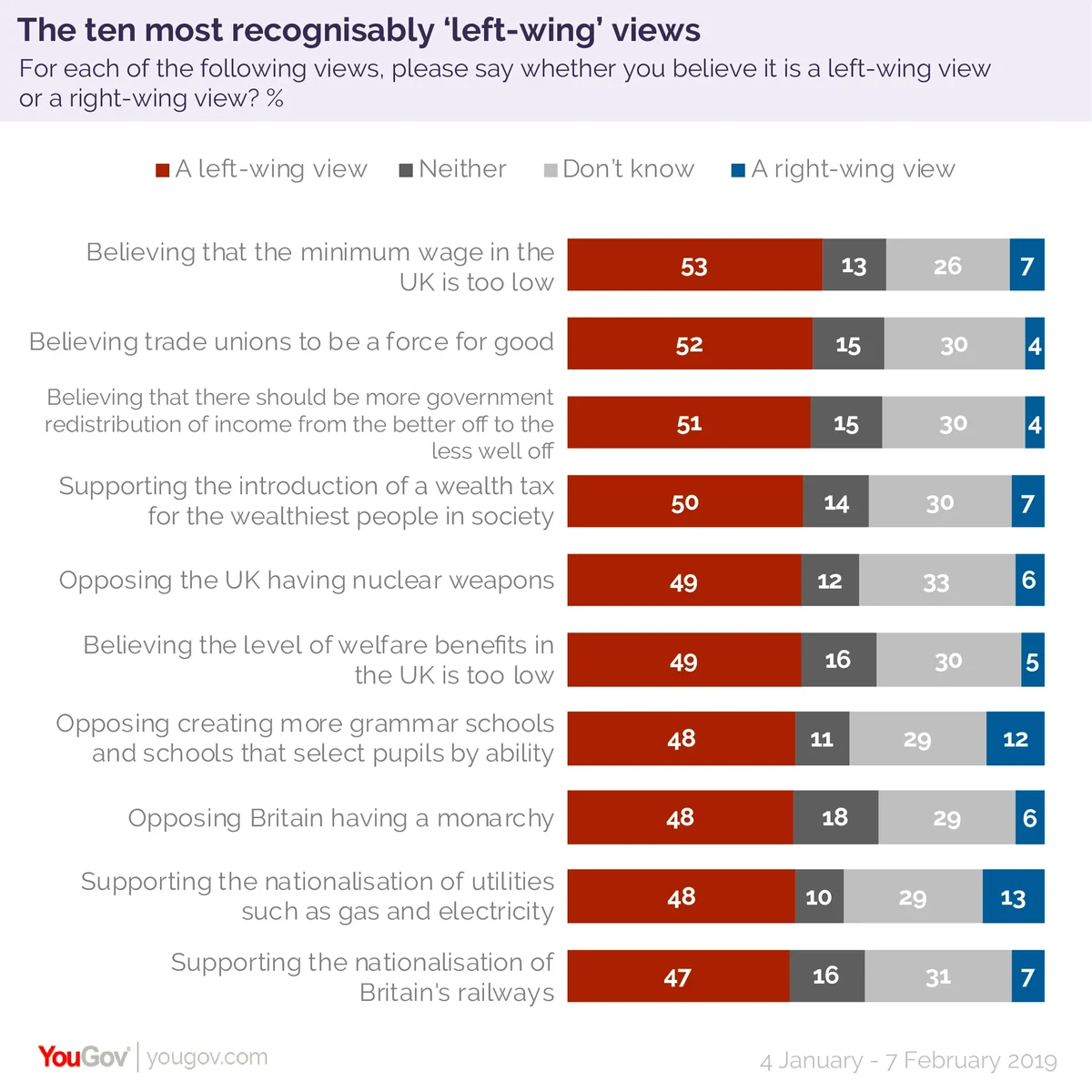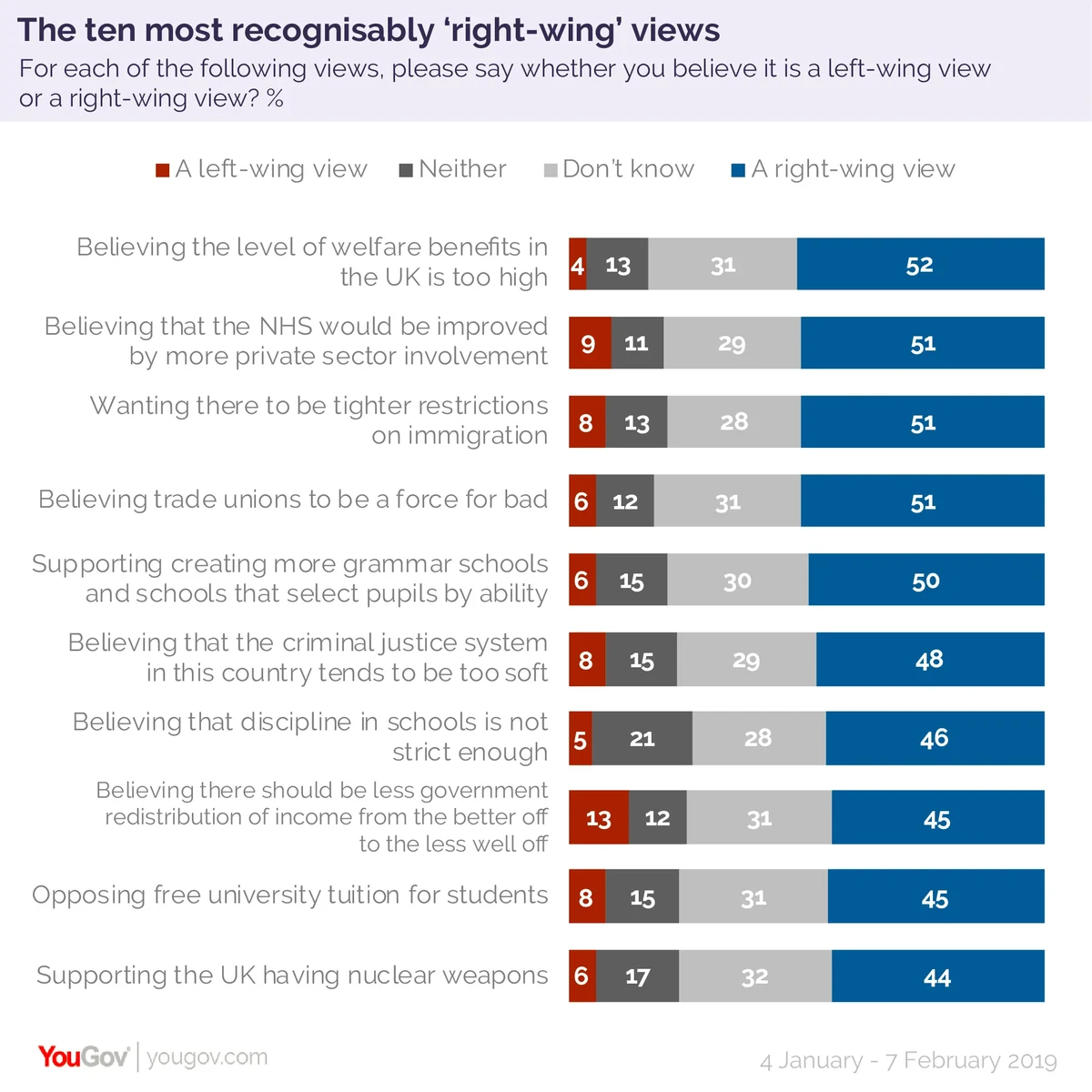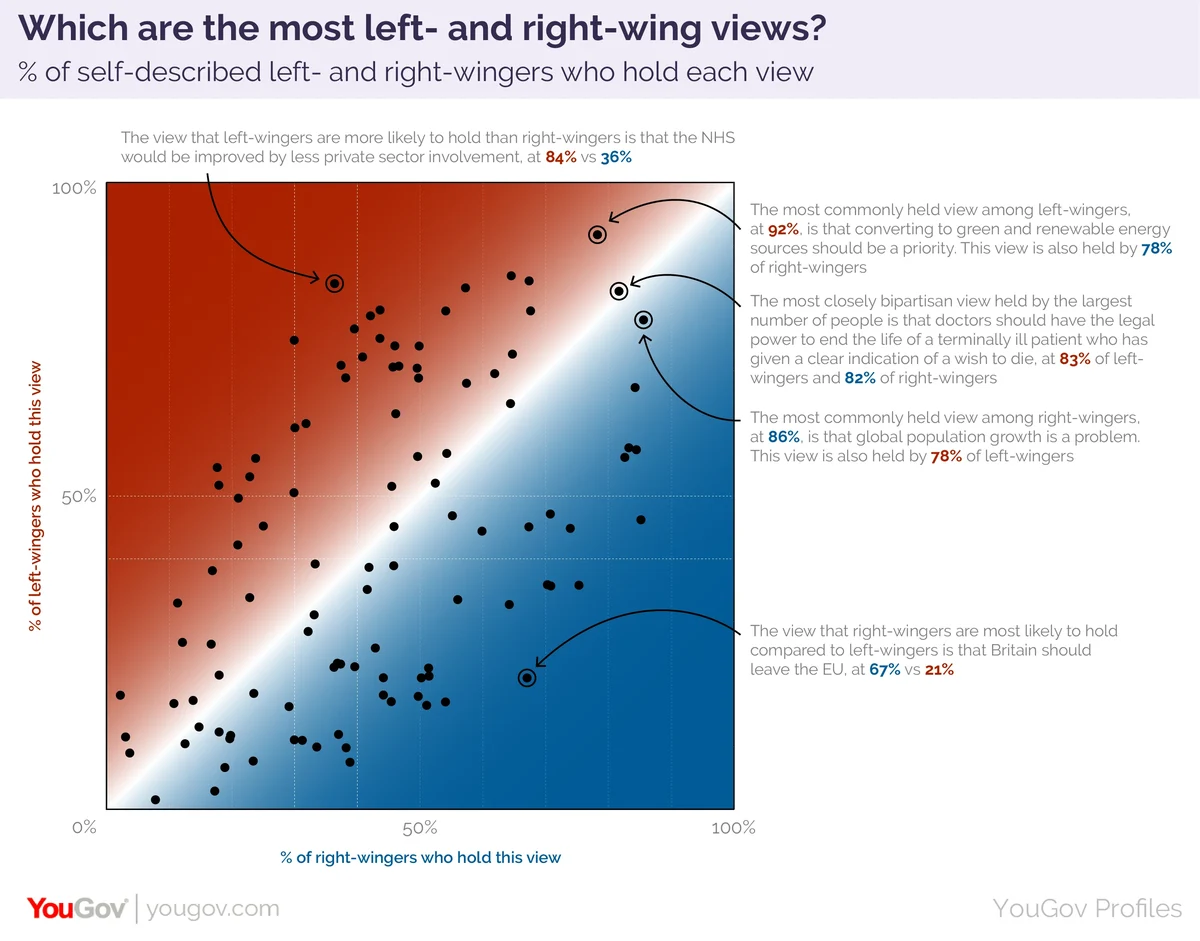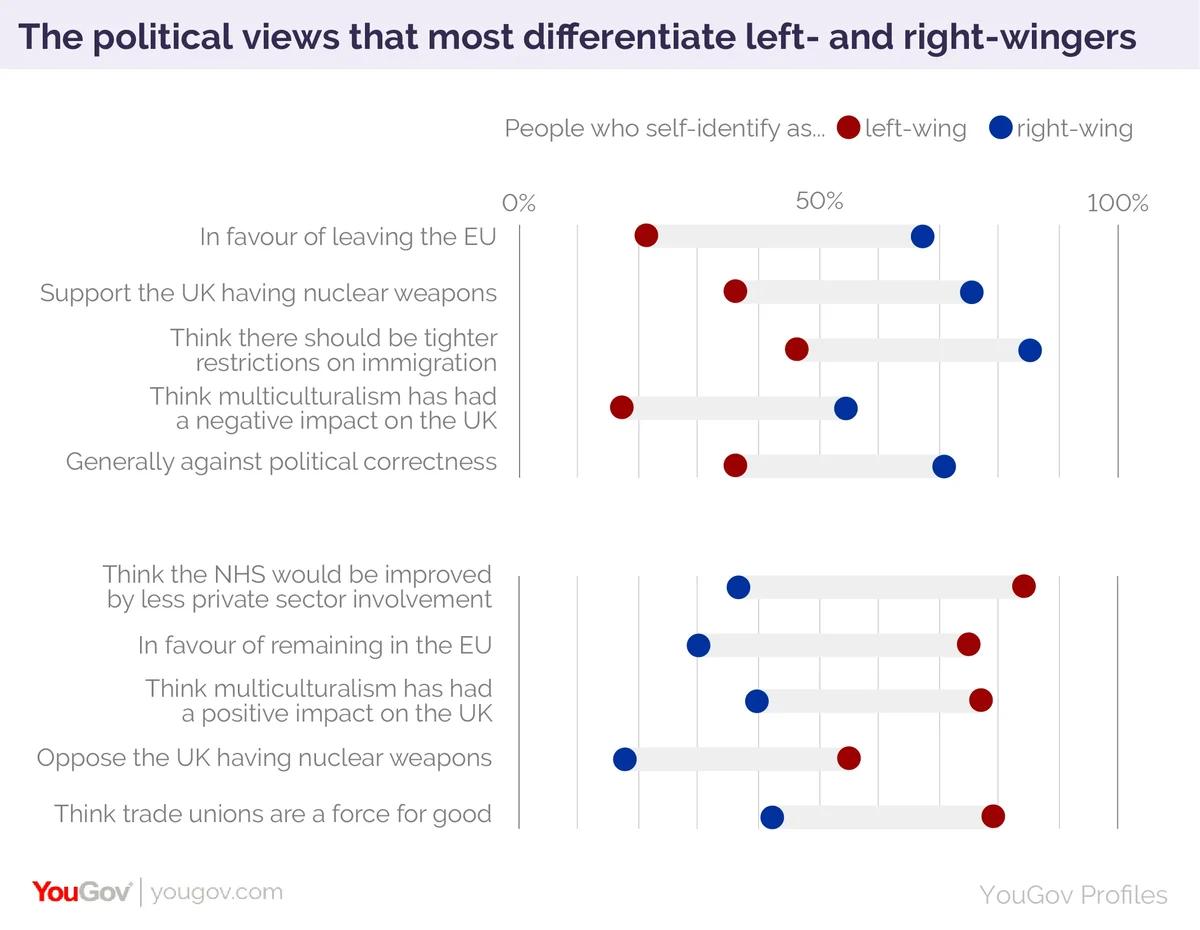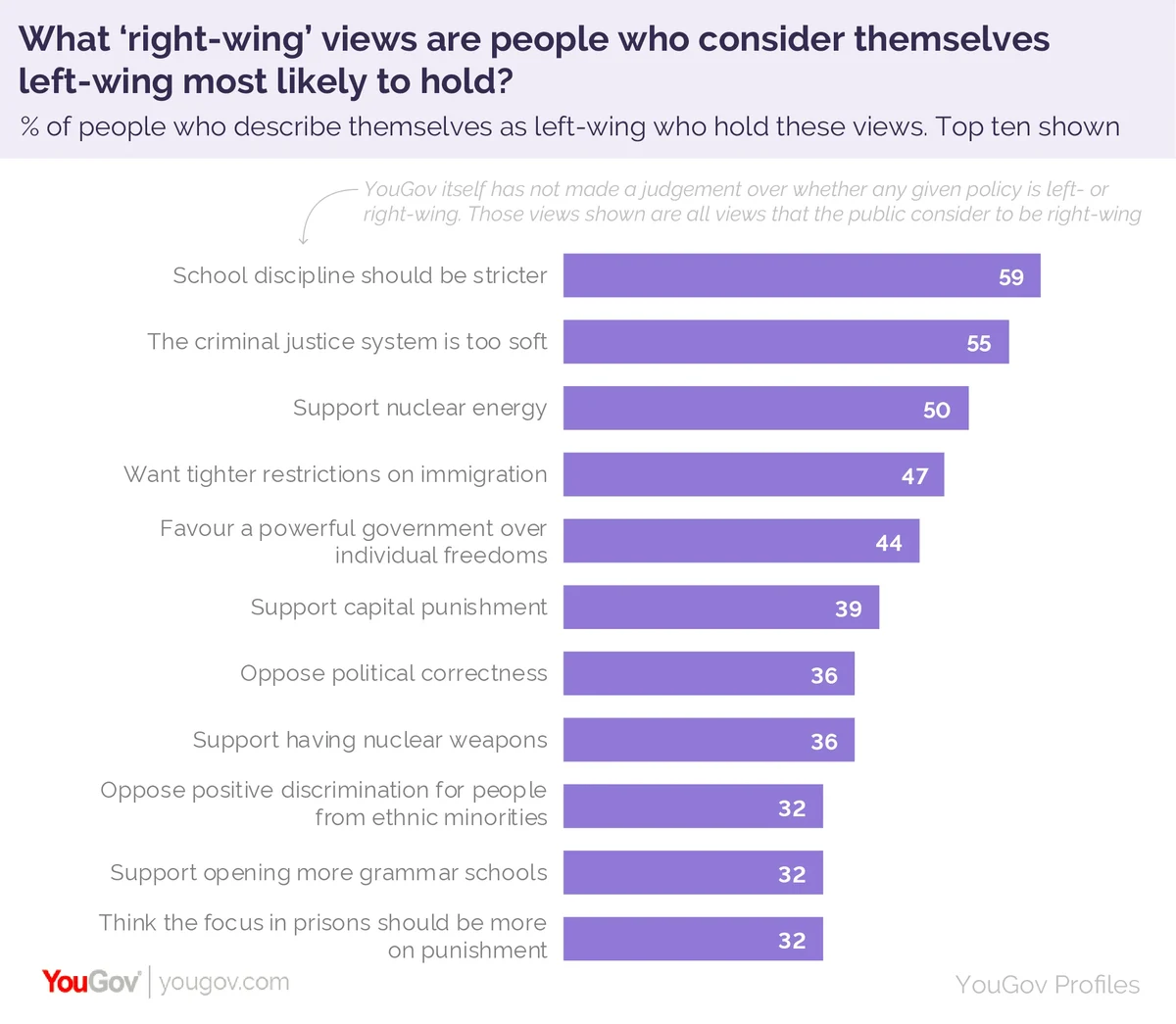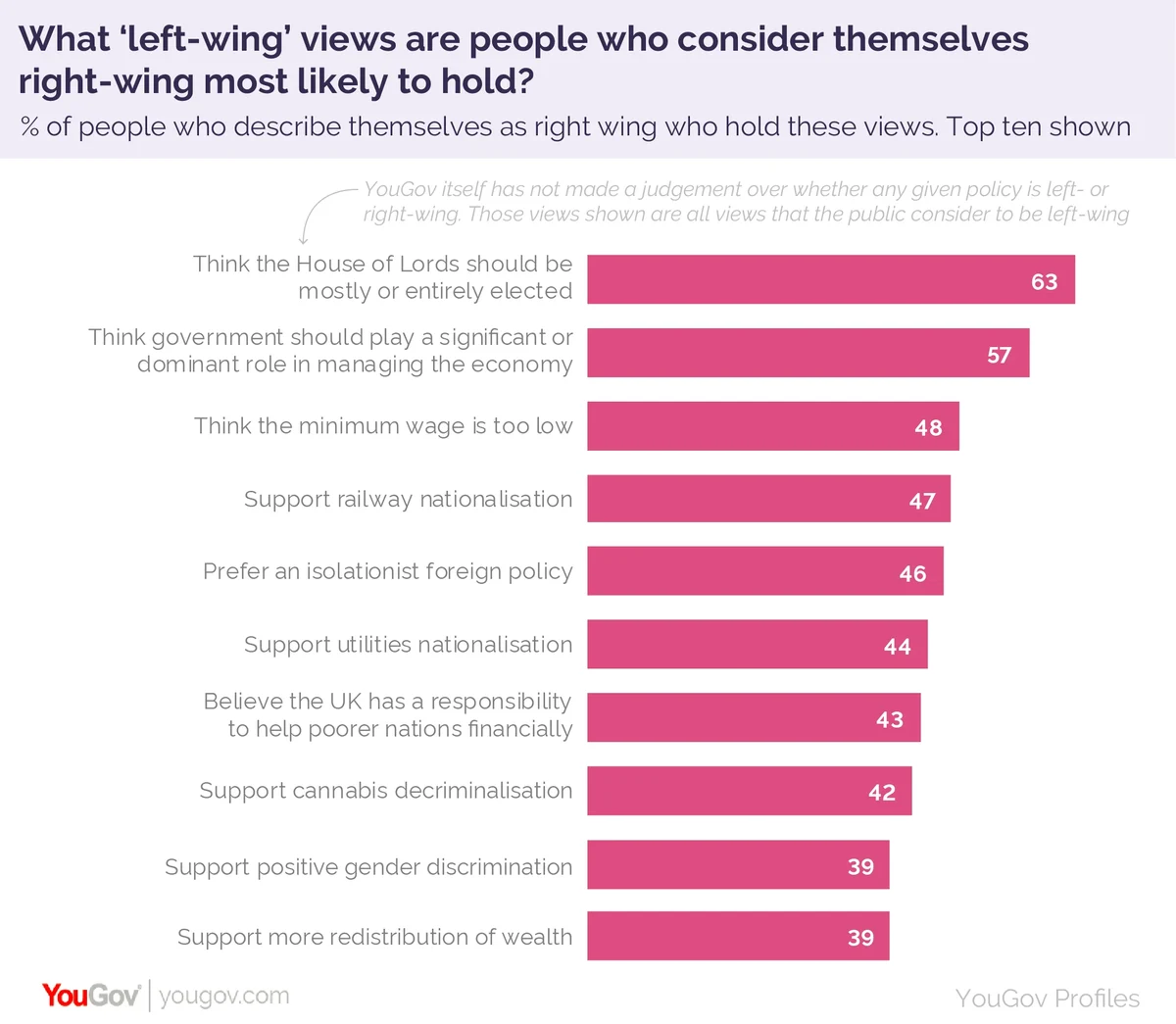YouGov shows that the left-wing to right-wing political spectrum is actually much more complex than previously thought when it comes to public opinion
A new angle of attack from Jeremy Corbyn seems to be that Boris Johnson is presiding over the most right-wing government in living memory.
That might be a helpful move if politicians had an accurate assessment of where the public stands on the left-right spectrum. But if the reaction in Westminster to YouGov survey data from earlier this week showing that 75% of Brits (including 61% of Labour voters) support the PM’s proposed expansion of stop and search powers is anything to go by, they may well not.
Framing politics in terms of left-wing and right-wing might be simple for politicians, and comforting to activists, but it seems that these terms just aren’t that useful for talking about - or indeed to - the general public.
A new YouGov study reveals that the political wing spectrum is poorly understood and also that huge numbers of people don’t hold consistent left- and right-wing outlooks.
(Please note this is all before even getting into the argument about whether the left- and right-wing scale should be accompanied by an authoritarian/libertarian axis. The data explored below is all public opinion regarding each policy we tested; YouGov has made no declaration that any given policy is left-wing, right-wing or otherwise.)
At most only half know what is a left-wing policy and what is a right-wing policy
For those who spend their days immersed in Westminster goings on, awareness of how the left-to-right spectrum works is taken for granted. But our results show that the wider public is in fact largely unfamiliar with the categorisation.
Of more than 100 political views we put to people, none were identified as being specifically left-wing or right-wing by more than 53% of people. That is to say, even for the very most stereotypically left- and right-wing policies, half of the population do not identify them as such.
The political view that the most Britons identify as being left-wing is “believing that the minimum wage in the UK is too low”. Around half (53%) of people said it was a left-wing view, while 13% said it was neither and 7% thought it was right-wing. The remaining 26% answered “don’t know”.
On the other end of the spectrum, the most identified right-wing view was “believing the level of welfare benefits in the UK is too high”. Again, around half (52%) of Britons say this is a right-wing view, while 31% don’t know, 13% think it is neither and 4% think it is left-wing.
When it comes to the views Britons are most likely to describe as neither left- nor right-wing, the top two are supporting euthanasia (52%) and believing the internet and social media play a negative role in modern society (51%).
What views do left- and right-wing people hold?
If asking people whether something is a left- or right-wing view is not so helpful, then perhaps looking at what views left- and right-wing people hold might be more instructive.
According to YouGov Profiles, 28% of Britons describe themselves as left-wing and 25% consider themselves right-wing. A further 19% place themselves in the centre and the remaining 29% don’t know.
The data reveals that the most commonly held political view among self-described left-wingers is that converting to green and renewable energy should be a priority, which 92% believe. Among self-described right-wingers, it is that global population growth is a problem, which 86% believe.
However, these views do not appear to be distinct to one end of the spectrum over the other: 78% of right-wingers also think that green and renewable energy should be prioritised, while 78% of left-wingers also think that global population growth is a problem.
So, instead, a better way to determine distinctly left- or right-wing views would be to look at what views people on one extreme are most likely to hold when compared to those on the other.
Using this method reveals some more recognisably partisan stances. The view that right-wingers are most likely to hold compared to left-wingers is that Britain should leave the EU, at 67% versus 21%, while the view that left-wingers are more likely to hold than right-wingers is that the NHS would be improved by less private sector involvement, at 84% versus 36%.
Other key left and right divisions are over nuclear weapons (75% of right-wing people support having them, while 55% of left-wingers oppose) and multiculturalism (54% of right-wingers think it has been bad for Britain while 77% of left-wingers think it has been good).
The data also shows that supporting euthanasia – the political view Britons were most likely to see as neither left nor right – is also the most closely held bipartisan view, with 83% of left-wingers and 82% of right-wingers backing the right for doctors to end the life of consenting terminally ill patients.
What views do left- and right-wing people have that they ‘shouldn’t’
While the most distinct views held by left- and right-wing people do fit well with the stereotypical view of left- and right-wing, there are a great deal of policy areas where people’s views run directly counter to that. (Please note, as mentioned above YouGov itself has not made a judgement on whether any given policy is left- or right-wing. The examples that follow are all ones that the public consider to be left- or right-wing.)
For instance, a majority of left-wing Britons (59%) believe that school discipline should be stricter, making it the most commonly-held right-wing view among the left. Likewise, 55% of left-wingers believe criminal justice in Britain to be too soft, a plurality of 47% want to see tighter restrictions on immigration, and sizeable minorities of 39% support capital punishment and 36% support Britain having a nuclear arsenal.
The most commonly held ‘left-wing’ view among right-wing Britons is that the House of Lords should be mostly or entirely elected, at 60%. A majority (57%) also say the government should have a significant or dominant role in managing the economy, and 48% think the minimum wage is too low. A plurality of right-wing people also support nationalisation of railways (47%) and utilities (44%).
Of course, as we saw in the beginning, people are seemingly unclear on how left and right work, so it could simply be that these counterintuitive figures simply reflect people having classified themselves incorrectly (after all, there is clearly a large gap between the 70% of people who can place themselves somewhere on the left-right axis and the maximum of half who can actually identify the most stereotypical left/right policies).
So we looked at how the attitudes of people specific individual political views overlap, and the result is the same: large numbers of those who hold key left-wing views also support right-wing policies (and vice versa).
For instance, among Britons who support a greater redistribution of wealth, 59% support capital punishment, 72% think the criminal justice system is too soft and 68% want tighter restrictions on immigration.
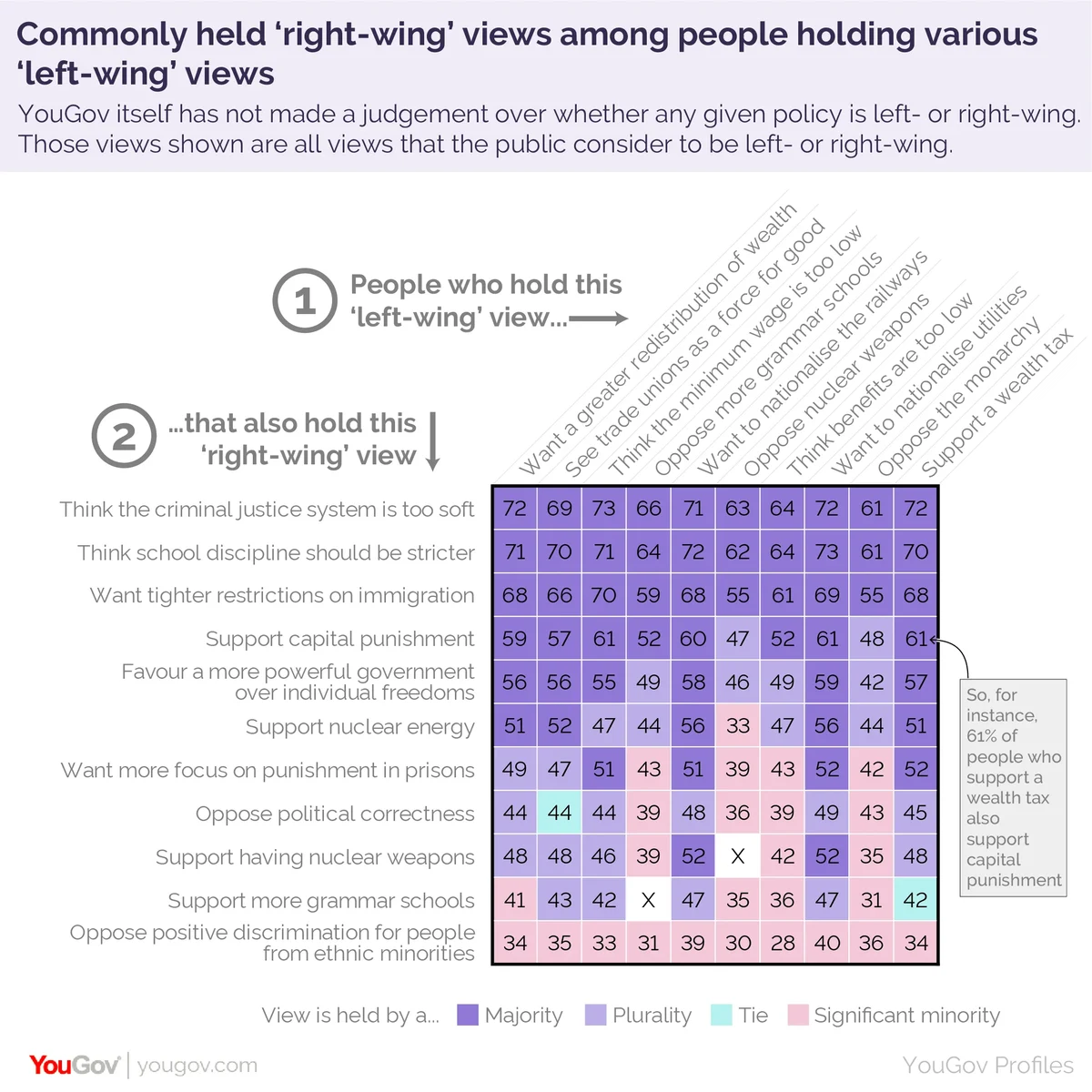
Likewise, among Britons who want less redistribution of wealth, 47% the government to take a dominant/significant role in managing the economy, 42% think the minimum wage is too low, and 35% think the UK has a responsibility to aid poorer nations.
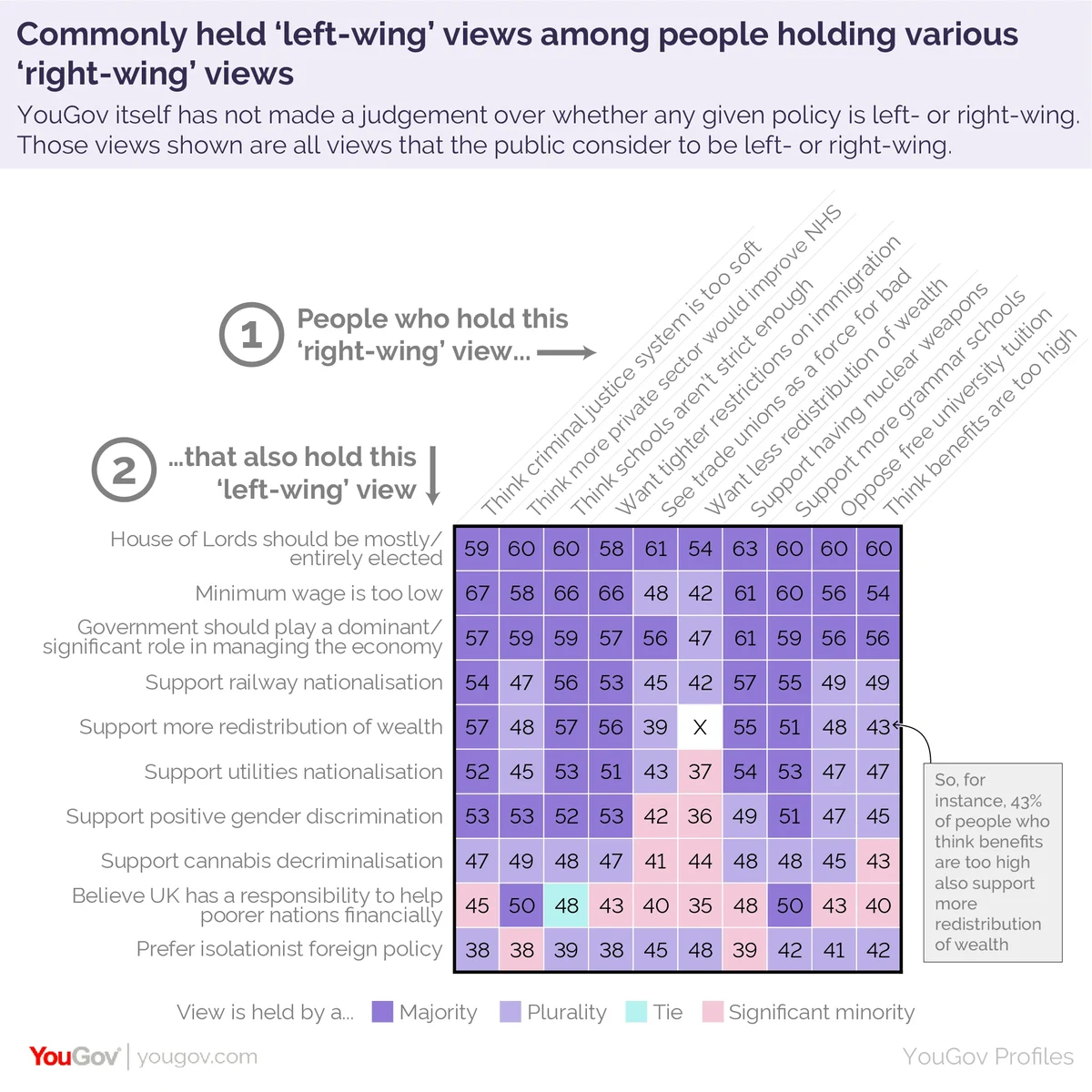
Why does this matter? British politics is more fractured than ever before, with party loyalties in flux and the fault lines of left and right no longer holding sway (if they ever did). Any politician who still looks at the electorate in terms of left and right is not only missing opportunities to appeal to voters who support other parties, but is also potentially unaware of how up for grabs their own voters are.
The new Prime Minister is a man who is willing to defy the expected political boundaries. He was twice elected as Mayor of London – an inherently left-leaning city – and despite austerity having been Conservative policy for a decade looks set to declare a public spending spree.
There is space in the current political landscape for some very radical appeals to be made that would prove very popular. This applies to all parties, not just Boris Johnson. Any politician willing to do so could find themselves with the keys to victory.
Photo: Getty
See results for the left/right-wing policy identification here, here, here, here and here

